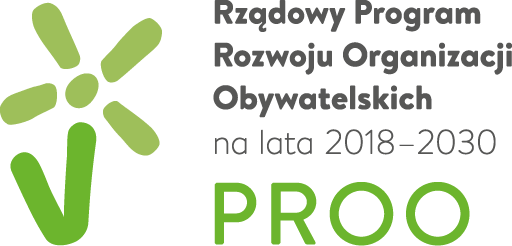Polish prisons, like those around the world, are places where everyday life is governed by its own rules. Imagine living behind walls, where space is limited and privacy becomes a luxury. Housing conditions sometimes vary, but prisoners often have to share a cell with others. Access to sanitation and hygiene facilities is another challenge that may seem obvious to those at large, but in prisons it is an issue that does not always meet expectations. The emotional, familial and mental state of those deprived of liberty is an even more complex issue. Being cut off from family and loved ones, limited contact with the outside world, and not being able to participate in the daily lives of their loved ones can lead to feelings of isolation, loneliness and frustration. Some may struggle with depression or anxiety, and psychological support, while available, is not always as intense as it could be. On the other hand, life in prison is also a time for reflection, learning and planning for the future after release, which for some becomes an opportunity for change. Despite the difficulties, many prisoners are trying to find something positive in their situation by taking advantage of available rehabilitation, educational or vocational programs.
Going free for former prisoners is often like entering a world that is no longer the same as the one they left behind. After years behind walls, they may experience difficulty navigating the reality that has moved forward, especially when it comes to technological advances. Smartphones, social media, modern payment systems – all can seem foreign and overwhelming. In addition, many are struggling to rebuild family ties that may have weakened over the years or even broken completely. Difficulties finding a job, lack of understanding from society and feelings of isolation can exacerbate the feeling of being isolated from the world in which one once lived. Clashing with the changed reality takes time, patience and support, both from loved ones and professionals. For many former prisoners, it becomes crucial to find anchor points in the new world, as well as support in dealing with everyday problems that may now seem completely new. The adaptation process requires them not only to learn how to use new technologies, but also to build a new place for themselves in society, which is not an easy task, but one that can be accomplished with the right help.
During the first 3 months after the date of incarceration, his family can count on the assistance of our Foundation. A family member is defined as a spouse (spouse), cohabitant (cohabitant), children, siblings, parents, parents-in-law, and siblings of the spouse. The main rationale (aside from incarceration itself) for assistance is the loss of some income and/or trauma caused by the severing of family ties. To qualify, you must submit a certificate of incarceration and a document certifying that you are a family, such as marriage certificates, birth certificates (for a cohabitant or a common-law partner, it will be a copy of both ID cards with the same address, a joint rental agreement or similar). Prisoners’ families can count on legal support, psychological support and a career counselor, and more than that, material support such as vouchers, subsidized rent, vocational courses, medical treatment or medical devices.
During the prisoners’ stay in the penitentiary unit, they can receive assistance in the form of a hygiene or clothing package. To do this, our Foundation must receive a letter from the inmate with such a request, and then we fill out the documents by correspondence and prepare the package.
During the first 3 months after leaving prison or jail, ex-prisoners can count on our assistance – for details, visit the post-prison assistance tab

The Victims Assistance and Post-Penitentiary Aid Fund was established in 2012 on top of the Post-Penitentiary Aid Fund, which had been in existence since 1997. The 2011 reform established, as of January 1, 2012, a catalog of forms of post-penitentiary assistance, the rules for granting them, and led to the establishment of a network of post-penitentiary assistance centers nationwide as of 2019. Between 2023 and 2025, there are 32 centers in 15 provinces, of which 3 centers target only women.
The Fund’s revenues are cash generated from:
The court that rendered the decision in the first instance shall keep separate accounting records of the allusions and monetary benefits awarded to the Fund. Any convict obligated to pay a benefit to the Fund is summoned to fulfill the obligation within 30 days, and if he fails to do so, then enforcement proceedings are initiated, conducted by a bailiff.
The Justice Fund is disbursed for the following activities:
Post-penitentiary assistance to persons deprived of liberty, released from prisons and detention centers, and their loved ones, provided by:



Everyone deserves a chance

Funded by the National Liberty Institute – Center for Civil Society Development under the Government Program for the Development of Civic Organizations for 2018-2030.

